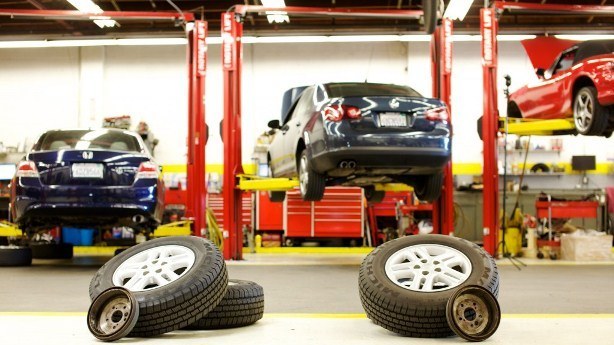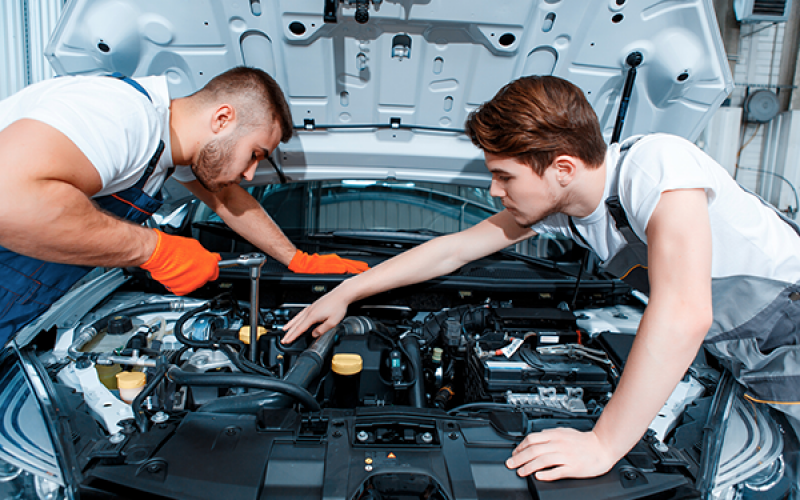All Categories
Featured
Your lorry's brakes are among one of the most important components in ensuring your safety and security and the security of others when traveling. Routine brake evaluations are important to maintaining optimum braking efficiency and staying clear of expensive repair work. Whether you're a skilled car owner or a brand-new motorist, recognizing brake examination guidelines can help you remain proactive about upkeep and guarantee your automobile is always roadworthy.
- Why Brake Inspections Issue. The more you drive, the much more rubbing your brake pads endure, ultimately leading to minimized stopping performance. Without correct evaluation, it's hard to determine when your brakes may be in demand of repair.
A well-kept brake system guarantees fast, receptive quiting power, particularly in emergency situations. It additionally aids prolong the life of your car, as ignoring brake maintenance can lead to a lot more extreme, expensive troubles later on.
- Indications You Need a Brake Assessment. While it's critical to have your brakes evaluated regularly, particular indications may show that they need interest. Watch (and ear) out for these warning signals:
Squealing or Grinding Noises: Unusual audios, particularly a shrill screech or grinding noise, usually indicate that your brake pads are used down. Vibration or Pulsation: If you really feel vibrations or a pulsing sensation when pushing the brake pedal, maybe a sign of warped blades or unequal brake pad wear. Decreased Brake Responsiveness: If your brakes really feel much less receptive or you have to press the pedal harder to reduce, it might show air in the brake lines or reduced brake fluid. Pulling to One Side: If your automobile pulls away when braking, it might indicate uneven brake pad wear or a brake fluid leak. Control Panel Warning Lights: Some autos have brake-related caution lights that show concerns like reduced brake fluid or worn brake parts. If you discover any of these signs and symptoms, it's essential to have an expert mechanic execute a brake assessment as quickly as possible.

- What Takes place During a Brake Evaluation? Throughout a brake assessment, a mechanic will certainly check a number of essential elements of the stopping system to make sure every little thing remains in functioning order. Right here's what you can expect throughout the process:
Brake Pads and Shoes: The mechanic will certainly evaluate the thickness of the brake pads or shoes. If they're too slim, they'll need to be changed. Brake Rotors: Rotors are the discs that the brake pads press versus to slow your automobile down. They'll be checked for any signs of wear, scoring, or bending. Brake Fluid: Reduced or infected brake fluid can impair stopping performance. The technician will certainly check the fluid degree and quality and top it up or purge it if necessary. Brake Lines and Pipes: Brake lines bring fluid from the master cylinder to the brakes. The mechanic will inspect for any kind of leaks, splits, or damages to make certain proper liquid flow. Brake Calipers and Wheel Cyndrical Tubes: Calipers and wheel cyndrical tubes press the brake pads versus the rotors or drums. The service technician will inspect for wear, leaks, and appropriate procedure. 4. Exactly how Usually Should You Have Your Brakes Inspected? The regularity of brake inspections depends upon aspects like your driving behaviors, the sort of car you drive, and the environment in which you drive. As a basic rule, it's a great idea to have your brakes checked every 12,000 miles or annually. If you experience any of the warning signs pointed out previously, it's important to obtain your brakes examined immediately.
For those that often drive in hefty website traffic, hilly terrain, or extreme weather, even more constant assessments might be needed.
- Value of Timely Brake Repair Works. When you discover a problem with your brakes, it's vital to resolve it immediately. Postponing brake repair services can lead to even more considerable damages to your stopping system, leading to greater repair service expenses. In extreme instances, disregarding brake issues can result in finish brake failure, which is a serious safety risk.
By remaining on top of brake maintenance and dealing with concerns quickly, you ensure that your brakes continue to do as planned, keeping you and your travelers risk-free when traveling.
Final Thought: Maintain Your Brakes in Leading Forming. Brake assessments are a straightforward yet essential part of car upkeep. By comprehending the significance of routine assessments, knowing the signs of brake issues, and staying aggressive with fixings, you can ensure your lorry's braking system continues to be in ideal problem.
Latest Posts
The Advantages of Chain Link Secure Fencing for Your Building
A Trouble-free Method to Market Your Vehicle
Unlock Your Financial Partner at WyHy – Top Benefits for Your Future
